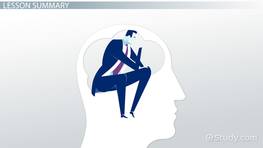Explore Psychological Research & Experimental Design
Research Methods in Psychology Courses
There are several types of psychology studies to choose from at Study.com. Learn about psychological methods, theories, and much more in course materials.
Explore our full library of psychological research & experimental design courses:
What are Research Methods in Psychology & Experimental Design?
Psychology studies the human mind and behaviors. It aims to provide insight into why people think, feel, and behave certain ways. When undesired social behaviors arise, psychology attempts to study, analyze, and understand the behavior so that it may be modified or changed.
Many research methods in psychology are used to study human behavior and its effects. These research methods assist psychologists with the proper development of treatment. Psychologists help patients set goals and modify their behaviors to achieve better mental health.
Research in psychology includes obtaining quantitative and qualitative data, including how patients react to stimuli, process information, and individual perception. Psychologists can analyze data about sets of individuals and communities and make statistical conclusions. Popular research methods include surveys, case studies, experimental studies, content and meta-analysis, correlational research, quasi-experiment, natural and structured observation, and neuroimaging.
Surveys include qualitative and quantitative data and can help determine the mental health of a representative sample of a population. Case studies are investigative research on patients that researchers can analyze for causes of mental illness for more effective treatment. Experimental studies help psychologists determine whether a relationship exists between variables and the cause and effect of the variable. Content analysis is based on a patient's word and language use patterns. Psychologists will use language pattern data to determine treatment. Meta-analysis studies published research from multiple sources to find correlations among the collective data.
Correlational research is nonexperimental. In this research, two variables that do not change are observed and measured over time to identify causal relationships. In quasi-experiment research, participants are not randomly assigned to groups because the variable the researchers are studying may not be random, such as a personality or mental health trait. Natural observation is when patients are studied in their natural environment, while structured observation usually involves observing patients in a lab setting. Finally, neuroimaging uses technology such as MRI or CT scans to take brain images, which can offer information about which parts of the brain are linked to certain functions or behaviors.





Psychological Research Test Prep
High school students, prospective educators, and school psychologists can take advantage of Study.com's test prep courses that cover topics related to psychology and psychological research methods. For example, the Praxis II Psychology Study Guide covers human growth and development, cognition, social impacts on psychology, aging, death, psychological treatment, and research methods. Other tests offered include preparation for the AP Psychology exam, the GACE School Psychology Test, the ILTS Social Science-Psychology test, and the EPPP exam. The study guides are tailored to each of these exams so that test-takers can feel well-prepared as they approach test day.
Browse All Psychological Research & Experimental Design Test Prep